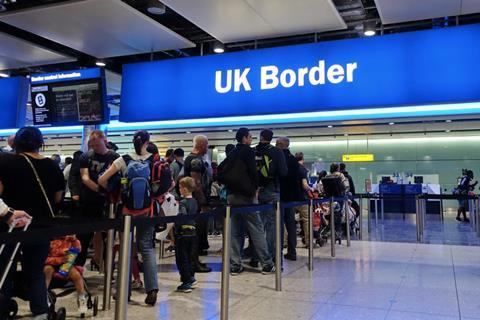Take part in an exclusive survey on construction and the UK’s new post-Brexit immigration policy landscape.
The Building the Future Think Tank, set up by Housing Today’s sister title Building this year to continue the work of the Building the Future Commission, is undertaking a major piece of research into the impact of post-Brexit immigration policy on the industry.
As part of this, we want Building readers to answer a survey on your experiences of working under the new system, in place since freedom of movement was abolished at the end of 2020.

The new points-based system introduced at the same time barred entry to all low-skilled workers, made recruiting others more difficult, such as by setting minimum salary levels, and mandating UK company sponsorship and fluent English language skills.
The change has had a significant impact on the hiring landscape in parts of the UK construction industry, particularly in areas, such as London, where overseas-born workers by 2020 formed nearly half of the workforce.
Since the introduction of the points-based immigration system over three years ago, the proportion of overseas workers in the UK industry dropped from 10.7% nationally in 2018 to 9.8% by 2021.
Jonathan Portes, professor of economics and public policy at Kings College London, and senior fellow at UK in a Changing Europe, said the new system had resulted in a net loss to the UK of 46,000 EU workers by 2022, against what would have otherwise been expected.
However, there is also some evidence of a move away from self-employment and toward higher rates of training since the introduction of the new system.
Click here to be part of major research on the impact of the new policy environment by telling us what this has meant for your business and the wider sector.
